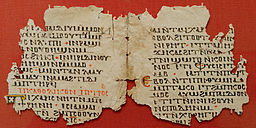Here’s what the Bible has to say about how people were, or should be, treated based on their occupation:
Isaac’s favorite son was the one who was a hunter, because Isaac liked to eat wild animals. But his wife preferred the son who wasn’t a hunter. The Egyptians thought all shepherds were detestable. And Paul said gardeners are nothing.
Jacob’s son Judah thought prostitutes should be burned to death. But God only said you need to do that if the prostitute is a priest’s daughter. God doesn’t allow prostitutes to marry priests, either. He hates shrine prostitutes, and doesn’t want their money.
God does seem to think prostitution in general is wicked. Rahab was considered righteous despite being a prostitute. God told a story where he hated two sisters because they were prostitutes. But he married them both anyway, for some reason. And then he killed them, because he hated them. Jesus says prostitutes can enter God’s kingdom, though.
God said all mediums and spiritists had to be executed. So Saul got rid of all the mediums and spiritists in the land. Or at least he tried to. And he only tried to until he felt the need to consult one himself. He chose to leave that one alone.
High priests are only allowed to marry virgins. And other priests can only marry Israelite virgins or widows of priests.
The Israelites were required to continually give the best part of everything they had to God… but “the Lord’s portion” actually went to the priests. There are things God won’t let you eat unless you’re a priest, a member of a priest’s family, or a priest’s slave. Nobody but priests are allowed to burn incense for God, either.
The Bible tells how many people returned from the Babylonian exile. Then it tells how many slaves they brought with them, who were not counted among the people. And then it also tells how many singers they had, suggesting that singers weren’t counted as people either??
In the gospels, everyone takes it for granted that tax collectors are evil. Jesus also thinks waiters are inferior to the people they serve.
Paul says God seems to give evangelists the most brutal treatment of all. He makes a cosmic spectacle of those poor, starving, weak, dishonored fools.
Slaves vs free people
When Jacob saw hundreds of seemingly unfriendly men approaching, he made his servant-wives travel toward them in the lead, while his favorite wife got the safest spot in the back.
According to the laws of the Bible, if someone is bedridden because you injured them, normally you have to pay them for their time and make sure they recover. And you’ll be punished more if they can’t walk at all. But if the person you injure is your slave, you don’t have to be punished at all, unless the slave dies or takes too long to recover. And if you do get punished for injuring a slave, it won’t be as severe a punishment as if you had injured a free person. (Runaway slaves aren’t to be treated badly, though.)
If a man has consensual sex with a woman who is engaged to someone else, they both have to die… unless the woman is a slave. There’s still a punishment then, but it’s not death.
Hebrew indentured servants apparently have to work twice as much as hired hands. And if they happen to start a family during their servitude, God’s law forces them to either leave their family or be enslaved for life.
Wise Solomon thinks it would be terribly unfitting for a slave to rule over princes. Or even to get a horse to ride. He thinks it’s a terrible thing for a land to have a king who used to be a servant. And foolish Agur agrees that the world can’t stand servants gaining authority.
Royalty vs commoners
Moses was raised as a prince, but once he grew up, he chose not to live as one, because that would be sinful somehow. (Or at least that’s what the author of Hebrews says, who also seems to think Moses was a Christian.)
God says the king of Israel isn’t allowed to collect a lot of gold, silver, horses, or wives. But there’s no rule against anyone else doing that.
King Lemuel was taught that it’s fine for poor, suffering people to drink wine and beer. But kings should never drink wine or beer, because of how much worse the consequences of combining drunkenness with power could be.
When Saul defeated the Amalekites, he killed almost all of them, but kept their king alive. Apparently God didn’t approve of him making that exception, though.
David killed tens of thousands of people, but he thought it was unacceptable for anyone to ever kill God’s chosen king (no matter how much God’s chosen king wanted them to).
Solomon (who happened to be the king) said nobody should ever even think anything bad about their king. He said if you’re a king, lots of people will naturally want to get on your good side. And he said it was evil for princes to have to walk on foot.
Paul thinks authorities can do no wrong, because they were all put there by God. He thinks rulers are never a threat to anyone but evildoers. And anyone who rebels against any authority is rebelling against God.
Continue reading Discrimination by occupation →
